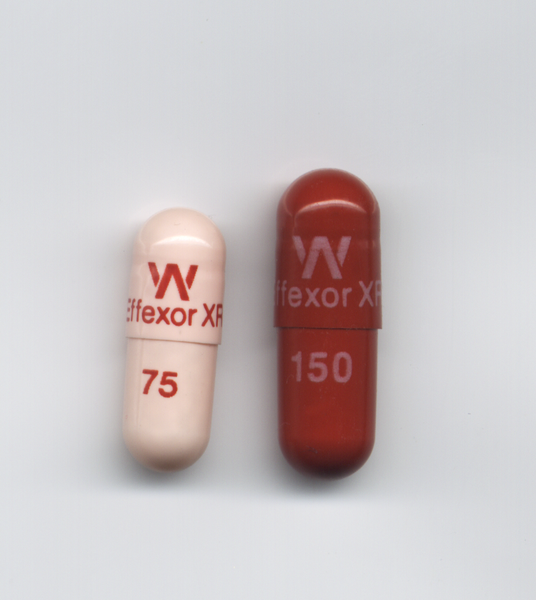Researchers have repeatedly found that pharmacological treatment of people diagnosed with depression has limited effectiveness. In an attempt to improve this treatment, researchers are searching for subgroups of people who might experience improvement when given particular chemical compounds.
A new study, published in the new journal Personalized Medicine in Psychiatry, attempted to identify particular SSRIs (selective serotonin reuptake inhibitors) that may have better effects for people of certain body fat levels and sex. The researchers re-analyzed the data from a multi-national depression trial. They found that people classed as “morbidly obese” (BMI greater than 40) responded better to venlafaxine (Effexor) than to other SSRIs. They found no other groups for whom specific SSRIs were more effective.
The researchers found that for most people (anyone with BMI less than 40), there was no difference in effectiveness between the three drugs. However, for people with a BMI greater than 40, venlafaxine was more effective than the other two SSRIs. The researchers theorized that this increased effectiveness was due not to “antidepressant” properties, but rather to the drug’s side effects, which include insomnia, drowsiness, and nausea. The researchers believe that these side effects might be more pronounced because venlafaxine is an extended-release formula, which causes the effects of the drug to linger in the body. These side effects might improve the “physical symptoms” of depression, which include sleep, appetite, and weight problems.

Although the authors do not mention it, substantial evidence suggests that alternative treatments for those problems might be exercise and dietary changes—which have been consistently shown to improve depressive symptoms, regardless of body fat and sex.
The study used data from a multinational trial of SSRIs known as “iSPOT-D.” Neither participants nor clinicians were blinded to treatment type. Participants were randomized to receive venlafaxine-ER (Effexor), sertraline (Zoloft), or escitalopram (Lexapro). 659 participants had BMI information and completed the study. The overall remission rate was 45%, meaning that at the end of the 8-week trial, almost half the participants were identified as no longer depressed. The study did not include a placebo group or psychotherapy, so the only comparison was between different SSRIs. The study also did not include long-term outcomes or quality of life measures.
Because the study did not include a placebo group or any psychotherapy groups, researchers cannot say that these antidepressants are the best treatment. Participants might have fared better in psychotherapy, or even with no treatment at all—as some studies have previously suggested. The lack of long-term follow-up also calls the results into question, as we cannot know whether these improvements lasted beyond the 8-week period of the study.
It is notable that the assessment of depression the researchers used—the 17-item Hamilton Rating Scale for Depression (HRSD)—has been criticized for its focus on physical symptoms such as sleep, appetite, and weight. Researchers believe it can lead to over-diagnosis of depression in people experiencing solely physical symptoms. Likewise, the BMI has been repeatedly debunked as an accurate measure of body fat.
SSRIs are commonly prescribed for many people who have been diagnosed with some variety of depression and/or anxiety. Although proponents argue that they are safe and effective, other researchers have found that they are ineffective—such as a 2010 finding that the efficacy of SSRIs “may be minimal or nonexistent, on average, in patients with mild or moderate symptoms” and a 2008 finding that the difference is “relatively small even for severely depressed patients.” These drugs are also associated with common, dangerous side effects and may increase suicidality and aggression, particularly in young people.
The researchers set out to show that body fat and sex impact the effectiveness of the chemical compound being prescribed. However, they failed to show that relationship. Their finding that for those with BMI greater than 40, venlafaxine appears mildly more effective, may be important clinical information—but should be taken as an indicator of appetite and sleep disturbances, rather than an “antidepressant” effect. Given the dangers of SSRIs, and the lack of evidence for their efficacy, exercise and dietary interventions might provide the same benefit, with fewer risks.
****
Green, E., Goldstein-Piekarski, A. N., Schatzberg, A. F., Rush, A. J., Ma, J., & Williams, L. (2017). Personalizing antidepressant choice by sex, body mass index, and symptom profile: An iSPOT-D report. Personalized Medicine in Psychiatry, 1-2(65-73). doi: http://dx.doi.org/10.1016/j.pmip.2016.12.001(Full Text)















“Although the authors do not mention it, substantial evidence suggests that alternative treatments for those problems might be exercise and dietary changes—which have been consistently shown to improve depressive symptoms, regardless of body fat and sex.”
I was just going to say this – how about “diet and exercise” as an alternative approach for morbidly obese people? Losing weight is likely to make depressed and obese people feel much better about themselves than taking a pill with its side effects.
Then there’s all the factors in our society that have led us to go from a civilization where almost no one was obese 100 years ago, to a country today where 35 percent or more of people are obese and can barely get around. All the issues like processed sugar and corn syrup in every other food, massive portion sizes at restaurants, technology and smartphones keeping us sedentary, lack of opportunities for exercise, not getting outdoors and so on. These are the real causes of obesity, and the hardest ones to tackle.
Report comment
A fascinating study looked at US immigrants’ health measures over three generations. While health indicators for first generation immigrants were all over the map, by the third generation, they had all “normalized” to USA-typical health problems, including increases in obesity, heart disease, diabetes, anxiety and depression. So much for genetic causes of “mental health problems,” or even physical health problems, for that matter! Our way of living makes people ill!
Report comment
Here is one link:
http://www.nytimes.com/2013/05/19/health/the-health-toll-of-immigration.html
Report comment
In light of psychiatric drugs being overprescribed (not mentioning their disctuctive impact on human body) I cannot get why such an article would be published on MAI, unless I am missing something…
Report comment
My guess is that this is psychiatry trying to counter the critics it is having and criticing the study for sloppy science is a way of fighting that.
Report comment
Of course :-)) you are right John. I don’t know why I did not see this earlier (maybe due to the fact that I read it not carefully enough)
Report comment